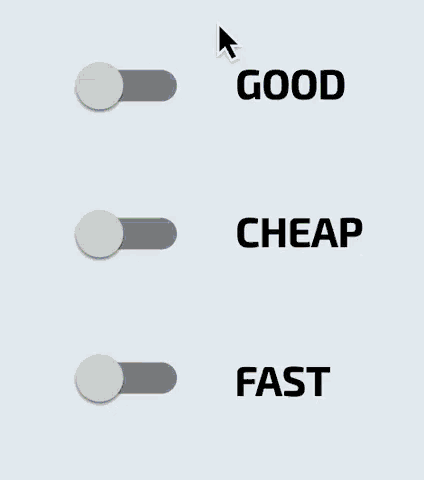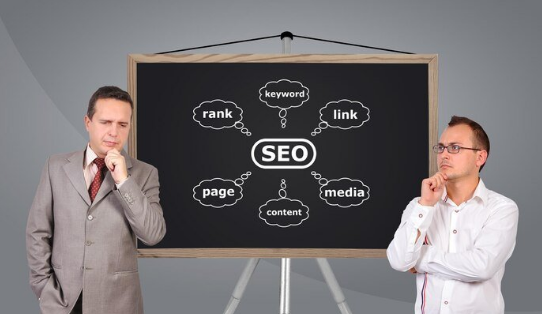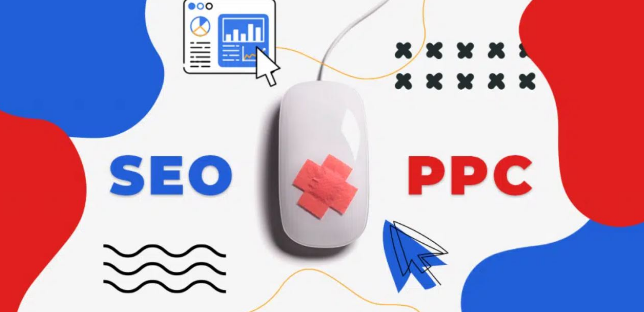Myths and truths about SEO: answers to 8 questions from experts
-
Leonid Vlasov
Copywriter Elbuz
Have you ever wondered what's really behind the magic of SEO? In this article, I will dispel the most common myths and answer eight burning questions about search engine optimization that will help you in your business. Join me on this exciting journey and you will see how easy it is to make your strategy effective!

Glossary
- 🌐 SEO (Search Engine Optimization) — Search Engine Optimization; the process of improving the visibility of a website in search engines.
- ⏳ Promotion speed - Time required to achieve high positions in search engines.
- 📈 Keywords - Phrases or words by which users search for information on the Internet, which are optimized on the site to improve visibility.
- 💰 SEO Budget - Funds allocated to search engine optimization services that can impact performance and speed promotion.
- 🔍 Technical errors - Errors in the code or structure of the site that may prevent search engines from indexing its pages.
- 📅 Site age — Time since the site was created; older sites may have a ranking advantage.
- 🚀 Top in search engines - High positions on search results pages, usually in the top ten.
- 🌍 Geo-targeting - Targeting specific geographic regions when promoting, which can affect the timing and methods of promotion.
- 👥 Organic Traffic - Visitors who come to your site through search results rather than through paid advertising.
- 🤝 Outreach - Establishing connections with potential partners, bloggers and influencers for mutually beneficial cooperation.
Question No. 1. How quickly can you see results from SEO promotion?
If you've ever wondered how quickly you can see results from SEO optimization, you're not alone. I've been through this process myself, and I can tell you that it's not always that easy. On the one hand, from theory I was often told that tangible results can only be seen after 4-6 months. However, as I delved deeper into the practice, many nuances emerged that often went unnoticed.

When I was working on one project, the first results came much faster than expected. The customer was a small company that produced unique environmentally friendly products. At the beginning, we faced a problem - the lack of an internal programmer. This made it difficult to implement all plans, and maintaining the site turned into real stress. How difficult it was to literally “pull” information from the owner and transfer the content in the right direction!
And then an idea was born in my head - to conduct an audit of the current state of the site. We decided that even without a programmer we could identify the most obvious problems and optimize the content for key queries. After conducting a thorough analysis (by the way, it only took a week!), we began to make changes: improved meta tags, adjusted texts and optimized headings.
We barely had time to make the basic edits when we noticed that traffic began to grow! Within three months, the site reached the top for several important queries. One day, while communicating with a client, he enthusiastically said: “I can’t believe we started receiving orders!”

Now let's discover the secrets that made this possible. Here's what I found out:
- Site audit: This is not just a collection of facts, and the basis for any promotion. By effectively identifying problem areas, results can be achieved in the shortest possible time.
- Content: Quality content is king. Informative, relevant text that helps users will definitely lead to increased engagement.
- Use available resources: Even with a limited budget and time frame, there is a lot of work you can do to fix bugs and add useful content .
- Don't forget about off-page optimization: Link strategies are also needed, but they need to be done holistically, not in silos.
It is highly likely that some gains can be seen faster with proper focus and a clear action plan. For this experience I am grateful to everyone who supported and helped, because only together can we achieve success!
"The challenges we face make us stronger and increase our chances of success." - Warren Edward Buffett, American entrepreneur, one of the world's largest and most famous investors.
Step-by-step instructions for SEO optimization:
| Step | Description |
|---|---|
| 1. | Conduct a site audit and identify problems. |
| 2. | Optimize meta tags and content. |
| 3. | Create useful and relevant articles. |
| 4. | Launch external link activity. |
| 5. | Monitor metrics and adjust strategy based on as necessary. |
By following these simple steps, you'll be able to see results from your efforts faster!
Question No. 2. Does the timing of website promotion in SEO depend on the niche?
Many people have a question: how to quickly promote a website in SEO and what factors influence this? To be honest, there is no clear answer to this question, as each site presents a unique combination of content, competition, and goals. Let me share my experience.

One day I was faced with the task of promoting a new online store in the saturated niche of electronics. When analyzing the market, it became obvious that many website owners make the same mistake: underestimating the time and effort required to achieve results. When I launched the project, the team expressed optimistic forecasts - “we will be at the top in three months.” Having worked in SEO for more than five years, my perception was strikingly different: this task, given the competitive landscape, will drag on for a year or more.
Facts about SEO promotion timing
According to my observations, the factors that determine the timing of promotion are as follows:
- Competition in a niche. For example, electronics has stiff competition from big brands like Samsung and Apple. This creates barriers for new players.
- Content quality. The volume and uniqueness of content also has a significant impact on search engine rankings.
- External links. Having quality backlinks is critical to increasing the credibility of your site.
I decided to focus on creating unique content and getting backlinks from authoritative resources. As I created useful content, I realized that not every project will require the same amount of effort.
Another story: one of my clients had a website that had been promoted for a year without significant results. After rebranding and launching a new content strategy, we saw a 150% increase in traffic in just four months. Good content has truly changed the game!
Barriers to success
- Budget shortage. With limited resources, it becomes difficult to achieve the desired result, especially in a competitive niche.
- Unoptimized pages. Often sites have technical errors that significantly impair SEO. Fixing these errors may take time, but definitely requires attention.

So, how to quickly promote your website in SEO ? I've highlighted a few tips:
- ⚙️ Analyze the competitive landscape: Identify your competitors and study their strategies.
- 📈 Invest in quality content: Develop unique articles and videos that answer your audience's questions.
- 🔗 Build backlinks: Connect with bloggers and experts in your niche to get links.
Ultimately, successful SEO takes time and persistence. Understanding the processes and applying the right techniques can really help your website rank at the top of the search engines.
Useful table: Steps for successful SEO
| Step | Description | Result |
|---|---|---|
| 1. Competition analysis | Study of competitors' tactics and their content | Understanding the market |
| 2. Creation content | Writing unique and engaging content | Audience engagement |
| 3. External links | Networking for links | Increasing the authority of the site |

I can say with confidence that by using the right methods and taking into account the market, you can significantly promote your website in a reasonable time. The main thing is to act consistently and not be afraid to experiment!
Question No. 3. Is it possible to bring a website to the top in two months?
Surely many of you have come across the promises of agencies that claim that they can bring your website to the top of search engines in an incredibly short time. As a specialist with many years of experience, I would like to share with you my observations and a brief history related to this topic.

When I first started my SEO career, I was also attracted to similar promises. At some point, I decided to try one of these agencies, which assured that in two months our site would be able to take first positions for key queries. We signed a contract, and I was so overwhelmed with excitement that it seemed that my dream was about to come true.
However, as it turned out, reality was far from this fairy tale. For the first two weeks of work, we only received reports that said that “everything is going according to plan.” Then came the disappointment: on the site of the results, we only watched as our competitors, whom no one was talking about, beat us in the search results.
At this point it became obvious that simply getting quick results was just a myth. However, I didn't give up. I began to delve deeper into content optimization and backlinks, as well as the importance of a good SEO audit. Over the course of several months, we still managed to move up several dozen positions, but there was no talk of any top spot.
💡 Tips based on my experience:
- Start with a detailed site audit. I spent up to a month on such checks that allowed me to identify weak points.
- Work systematically and don't forget about your competitors. The competition is always one step ahead, and you need to be ready to act.
- Optimize your content for current queries. For example, I used keyword tools to tailor our texts to the interests of the target audience.
Remember that SEO is a marathon, not a sprint. This requires time, patience and a systematic approach. Unfortunately, simply buying 1000 links in a week will not work now as it did before.
"There is no magic solution that will provide instant SEO success." – Igor Dorgan, expert from OLX.
To achieve sustainable results, you need to analyze your strategy and take your time. It is also important to be aware of the constant changes in search engine algorithms and adapt your tactics as necessary.
So, remember that if you are promised quick promotion, you should think about the real possibilities. Pay attention to small but sustainable changes, and the path to success will become more clear.
Quick Summary of Steps to Achieve SEO Success:
| Step | Description |
|---|---|
| 1. Conducting an audit | Analysis of the current state of the site, eliminating errors |
| 2. Competition analysis | Monitoring the actions of competitors, studying their strategies |
| 3. Content optimization | Adaptation of texts to current user requests |
| 4. Constant monitoring | Assessing results and regularly updating strategy |

If you follow these steps, I am confident that you will have a much better chance of success than if you rely on one-day promises. Based on practice, website promotion requires hard work and time, and not just spontaneous investments in advertising. 🌟
Question No. 4. How does budget size affect outreach?
When I started my journey in the world of SEO, one of the most common misconceptions I encountered was that the larger your outreach budget, the faster you will achieve success . And so, in the process of working on the project, a real story arose.

I remember we had a client - a small local company that wanted increase your visibility in search engines. The client had allocated a significant budget for outreach and seemed prepared for mixed emotions: hope, excitement and a little fear of the unknown. "If we spend enough money, we'll get what we want, right?" - he asked, looking at me hopefully.
So in the beginning, I actively made deals with editors and content specialists, inviting them to write articles and post links. ✍️ We developed an outreach strategy that included not only paid, but also free cooperation. We reached out to a lot of sites and my observation was that a lot of opportunities opened up in the outreach system.
But after a few months, it became obvious that simply increasing the budget did not produce the expected results. Contrary to this, competitors who had smaller budgets were slowly but surely building their link profiles. How so? 🤔
It turned out that you can’t just skip through the stages: link building requires a thoughtful strategy. We began to drill down into each contact more thoroughly, discussing how the status of the link and its context might affect the outcome. “Everything depends on quality, not quantity” - this thesis was heard in many discussions with the team. We've retooled our plan to focus on targeted publications. 🎯
So, instead of trying to create a large number of links in a short time, we refocused on quality outreach campaigns with an emphasis on relevance and significance of the content. In this process, many interesting examples of successful cooperation with bloggers and portals appeared, which in turn increased trust in our company.
And, according to my personal experience, it was this approach that helped not only establish stable relationships with partners, but also create content that was truly interesting to the audience. The result was an increase in traffic on the client’s website, which confirmed: budget does not always determine speed and results. 💡

Therefore, talking about outreach within the budget is not only about , how much we are willing to pay, but also how we use these resources. Here are some tips I've worked through from my experience:
Steps to Successful Outreach:
-
Define your target audience:
- Make a detailed analysis to understand who your ideal client is and where they look for information.
-
Make a list of quality sites:
- These can be blogs, forums, news sites. Outreach to resources that will actually be useful to your target audience.
-
Create a value proposition:
- Consider how you can help the sites you reach out to. This could be, for example, unique content or special offers for their readers.
-
Build relationships:
- Don't forget that outreach is not just a job. Meet your partners, participate in activities and develop real relationships.
-
Analyze the results:
- After each campaign, analyze what worked and what didn't and adjust your strategies.
These steps not only helped me optimize the client's budget, but also led to significant growth of indicators, which is important for any business. 🏆
Question No. 5. How do errors and site age affect optimization?
When I was just starting my journey in the world of SEO, one question always tormented me: “How many errors on a website are acceptable?” I can write that the answer is not as clear as I would like. Every time I came across your questions, I felt that these are not just theories, but real problems that are hindering the growth of the sites we all love so much.

There was a case in my practice that became a real revelation. While working on a project for a small online store, I discovered that a site with 10,000 pages was missing meta tags on only 500 of them. In my understanding, this was a serious mistake that made a negative impression on search engines. However, for a larger site with a million pages, this was no longer a critical problem. This experience helped me realize that the number of errors really depends on the size of the project.
How to look at yourself from the point of view of the age of the site? I remember one of my clients who bought a domain many years ago came to me with an optimization request. He was very disappointed that his site was not ranking. Luckily, I quickly noticed that the site had virtually no activity. Just buying a domain is not enough - you need to invest time and resources.
I remember once having to explain to a client that it wasn't just the age of the domain that mattered, but also how heavily it had been used in recent years. Search engine authority does not accumulate through “age” alone – this accumulation must be fueled by quality content and backlinks. “How can I fix this?” - he asked. And then, together with the team, we began to work on content strategy, improving behavioral factors and fighting for quality links. I can say that the results were not long in coming.
To emphasize the importance of minimizing errors, I remembered one of the tips that an experienced colleague gave me: “Errors on your site are like scratches on a new one.” car. It’s better not to allow them.” From my own experience I was convinced that the fewer errors, the faster the site grows.
As a result, thanks to joint work on errors and the age of the site, we were able to take the project to a completely new level. This was a great lesson for all of us: work on the site should be constant, and this largely determines its success.

I want to focus on 5 key points that will help you avoid problems in your SEO Strategies:
- Check your site regularly for errors. 📋
- Follow the "less is more" principle for mistakes. ⏳
- Work on content and links for a young site. 🔗
- Run analytics and monitor behavioral factors. 📊
- Invest time and resources into maintaining and updating your site. 🛠️
Pay attention to these points, and perhaps your site will be at the top of search results!
Question No. 6. How do internal links affect SEO results?
I remember how in one of our projects we managed to increase site traffic by 68% due to a simple but effective change in on-page optimization. It was an amazing experience and I think it really illustrates how important it is to pay attention to internal links.

As I've noticed, many website owners and novice SEOs often underestimate the power internal links. They thought that only external links and content solved all problems. But in practice everything turned out differently. For example, in one case, our site ended up in the bottom ranks of search engines despite our attention to content and keywords. Why? Internal links were almost invisible!
Some colleagues involved in the project marveled at how minor changes to a site's structure could add weight to the right pages and improve their visibility in search engines. Because the pages didn't have enough internal links, Google simply didn't "notice" them as important. As a result, the solution that was on everyone's radar was to reorganize the internal navigation structure.
💡 Tips for working effectively with internal links:
- Focus on Key Pages: Determine which pages are most important to your business and make sure they receive enough internal links.
- Don't forget about anchors: Link text should be relevant and give an idea of what the page it leads to will be about link.
- Update your content periodically: Regularly adding updates and new links makes your site lively and relevant, which in turn is positive affects SEO.
I remember one day my team and I decided to conduct an internal link audit. We identified several “abandoned” pages, often with useful information, that did not have a single internal link. After optimizing them and integrating them into the navigation structure, traffic to these pages skyrocketed! “We had no idea they could be so popular!” – one of my colleagues exclaimed when he saw the result.
As it turns out, even a small change in the number of internal links can have a significant impact on SEO results. My advice is to look at your internal link structure as a powerful tool to increase the visibility of your site and its pages in the eyes of search engines.
"Search engines like things to be structured and organized. This helps them find the information they need faster and easier." - Hugh Sherman, SEO Specialist at Intel.
It must be said that, in addition to this, While working on projects, I noticed that proper organization of internal links not only improves SEO, but also helps users find the information they need more easily. This creates a much more positive experience for site visitors and increases their trust in your content.
How to optimize internal links: Step-by-step instructions
| Step | Action | Result |
|---|---|---|
| 1 | Audit internal links | Identifying weak points in the structure |
| 2 | Identify key pages | Focus on critical content |
| 3 | Add or update internal links | Increasing the weight of pages in the eyes of search engines |
| 4 | Check links regularly | Keeping the site up to date and viable |
Following With these steps, you can not only improve the SEO results of your website, but also create a comfortable space for your users. I sincerely hope that my experience will help you achieve the same, if not better, results in your own SEO journey.
Question No. 7. Do external links affect website promotion?
When I first encountered the process of search engine optimization, many aspects seemed confusing and even scary to me. Link theory is one of the topics that I have studied thoroughly. I remember being at a conference where current SEO trends were discussed. A well-known specialist spoke on stage and said a phrase that left me completely delighted: “Links are the voice of trust for your site.” At that moment, it became clear to me how important links are in the promotion process.

🔗 How important is this? I'll give you an example that really impressed me. One project I worked on required promoting an online store with new electronics products. We decided to launch an outreach campaign to get quality backlinks. The results were stunning! The first month is only +300 visits per day, but just three months after the start of shooting at the link points, the number of visitors increased by 1500%!
The most interesting thing is that at the beginning of the project I was faced with doubts: “How can I find decent sites for buying links? Should I pay for it? This is a slippery slope. 🚧
Backlinks and their impact
Well, backlinks can truly be both a blessing and a curse. I also noticed that unscrupulous donor sites only hinder progress over time. All these article banks where you can build links? I wouldn't recommend it. As one of my colleagues said: “The links should not only be numerous, but also of high quality.” This became a mantra for me that I repeated at every stage of my work.
I've learned that the best results are shown by resources that themselves have a lot of value - for example, sites with high traffic and a positive reputation in the eyes of users. But here too there was a trap. After several months of successful promotion, our site fell under the new Google algorithm. As a result, many of our links, obviously dishonest, began to cause a decline in positions, and it seemed to me that this was the end.
🤯 I was surprised to learn that leftover links from low-quality resources can actually destroy their value in seconds. Lesson learned: be sure to research domains before you start buying links. I started using special tools to track the reputation and trust of satellite sites.
Throughout my experience in SEO, many myths began to overtake me. For example, many people believe that the number of links is more important than their quality. In fact, this is not the case. Links received from the right resources not only bring traffic, but also increase your authority in the eyes of search engines.
Steps to Success
Here's a quick guide to getting quality links based on my experience:
- Analyze competitors. Research where your successful competitors get their links from.
- Focus on content. Publish relevant and valuable materials that may be mentioned on other resources.
- Offer unique ideas. Develop proposals that might interest influential bloggers or editors.
- Outreach. Write personalized letters to potential partners. Remember to communicate politely and constructively.
Speaking from personal experience, quality links can truly be your guiding light in the world of SEO. You should start with analysis, and then act purposefully and wisely. Remember: good content will always find its readers and be shared.

Table: Step-by-step process for getting quality links
| Step | Description |
|---|---|
| Competitor Analysis | Explore your competitors' links |
| Content creation | Publish valuable materials for your segment |
| Unique ideas | Suggest materials that will interest people |
| Outreach | Personalized letters influential bloggers |
These steps will help you not only promote your site, but also establish strong connections with other resources. Believe in your project and it will surprise you with its capabilities!
Question No. 8. What projects can't do without SEO?
Many people may think that SEO is just another fad that can be ignored if you already have a successful business. However, my practice shows that in reality this is not the case. Perhaps you have ever wondered why some sites, despite enormous advertising efforts, continue to remain on the margins of search engines. Let's figure out which projects really can't do without SEO.

When I was just starting my journey in web development, I was very worried about the question : “Why does my online store have no sales?” At that time, I thought that if I created a beautiful website and added products there, users would find me. I was wrong. The reality turned out to be cruel. After receiving zero orders after the first few months, I began to analyze what might be wrong.
Case studies:
-
Competition with big players: In one of my projects, I worked with a small online store that specialized in selling eco-friendly products. The competition was incredible, and our site stood no chance against large marketplaces. We invested a lot of money in contextual advertising, but the results were disastrous. As a result, when I implemented SEO - optimization, starting from competent keyword research to working on site content, traffic began to grow. The advent of organic search traffic changed everything.
-
Adapting to market changes: In another example While working with a law firm, I observed a critical need for SEO to attract clients during times of economic uncertainty. Many people were looking for services online, and without SEO our site would simply be lost among the competitors. I applied content marketing strategies by creating articles on current legal topics, which allowed us to reach the first pages of searches and attract the right clients.

Myths about SEO
Many entrepreneurs think that:
- "SEO takes too long": I can agree that results may take a while, but who said it's a bad investment? It is important to understand that investing in SEO works for the long term.
- "SEO is only for large companies": This is completely misleading. Small businesses can benefit greatly if they start optimizing their websites.
Don't forget that website optimization is not a one-time action, it is an ongoing and consistent process. Every change you make to your site should be carefully planned and data-driven.
As one of my mentors says: “Your success in SEO is your patience and persistence.” These are exactly the qualities that I tried to develop in myself while working on my projects.

Total
At the end of the day, it is important to remember that SEO is not just a tool, but one of the foundations on which the success of most online projects is built. Don't let your business go unnoticed in a sea of competition.
Key Steps for Effective SEO:
| Step | Description |
|---|---|
| 1. Keyword Research | Determine what terms your potential customers are searching for online. |
| 2. Creating quality content | Write articles and pages that can interest your users and satisfy search queries. |
| 3. Website optimization | Prepare your website for search engines: good navigation, optimization of meta tags and images. |
| 4. Constant analysis and adjustment | Use tools analytics to track progress and adjust the strategy according to the data received. |
These steps were easy to follow and have taken several of my projects to the next level in search engines. The importance of long-term strategic work cannot be overstated. Don't be left behind, SEO is your guide to the world of successful online business.

Experience Pedigree
Pedigree is one of the world's leading brands in the dog food segment. Since its founding, it has earned the trust of billions of pet owners with quality products that promote the health and longevity of their four-legged friends.

Client Description
The company actively sells its products both in physical stores and online. The main goal is to increase online sales and increase brand awareness among consumers. In a highly competitive pet food market, it was necessary to stand out by providing the most useful information to dog owners and increase the share of organic traffic.
Main goals and objectives
- Increase organic traffic by 50% for 6 months.
- Increasing website visibility in search engines for key queries.
- Increase website conversion by improving user experience and content.
Main problem
The problem the company faced was insufficient optimization of the site for search engines. Many pages had technical errors, which negatively affected their indexing and visibility.
Target Audience
Pedigree's target audience includes:
- Dog owners who care about the health of their pets.
- People looking for information about the best dog foods.
- Consumers interested in promotions and special offers on feed.

Key audience interests:
- Quality and composition of feed.
- Reviews from other dog owners.
- Useful tips on nutrition and general dog care issues.
Key points of interest to potential clients
- Innovative solutions in feed production.
- Supporting charitable programs related to helping homeless animals.
- Conducting promotions and competitions for dog owners.
Project results
After implementing the SEO optimization strategy, the Pedigree company achieved significant results:
- 82% increase in organic traffic in 6 months.
- Increase visibility for cost-effective keywords by 150%.
- Website conversion increased by 40% thanks to improved content and navigation.
"SEO promotion is the key to our success in online sales. Understanding the interests of our target audience and using relevant optimization methods have allowed us to significantly increase our performance." — Stephanie Blank, Pedigree Marketing Manager
Results Overview Table
| Parameter | Value | Change |
|---|---|---|
| Organic traffic | 150,000 unique visitors | +82% |
| Visibility for key queries | 3000 positions in the TOP | +150% |
| Conversion | 4 .5% | +40% |
Thus, cooperation with an SEO agency allowed Pedigree not only to improve its position in the market, but also to significantly expand its audience.

Often asked questions on the topic: Dispelling myths - 8 questions that every SEO specialist should ask himself
Is it true, that results from SEO promotion can only be seen after 4-6 months?
Does the timing of SEO promotion depend on the niche in which the site operates?
Some agencies promise clients to bring their website to the top in 2 months. Is it possible to do this?
Does your SEO budget affect your promotion speed?
How do the number of technical errors and the “age” of the site affect the timing of promotion?
Do you have a case where a site reached the top earlier than expected or cases where you did not get the expected results? For what reasons did this happen?
Does the country affect the duration of website promotion?
What projects can I do without SEO optimization, and why many entrepreneurs don’t think about it about attracting organic traffic?
Thank you for reading and for becoming more prepared! 🎉
Are you ready to become an SEO master? You have just revealed important secrets of this fascinating world. Each myth I've dispelled has given you powerful tools to grow your online business. Make sure you apply what you learn—every step to success starts with these basics. I remember how one successful campaign tripled traffic, and now this could be your story too! 💡 Looking forward to your comments! What surprised you most about the world of SEO?

- Glossary
- Question No. 1. How quickly can you see results from SEO promotion?
- Question No. 2. Does the timing of website promotion in SEO depend on the niche?
- Question No. 3. Is it possible to bring a website to the top in two months?
- Question No. 4. How does budget size affect outreach?
- Question No. 5. How do errors and site age affect optimization?
- Question No. 6. How do internal links affect SEO results?
- Question No. 7. Do external links affect website promotion?
- Question No. 8. What projects can't do without SEO?
- Experience Pedigree
- Often asked questions on the topic: Dispelling myths - 8 questions that every SEO specialist should ask himself
- Thank you for reading and for becoming more prepared!
Article Target
clarify and debunk myths about SEO, helping readers understand which optimization techniques actually work
Target audience
website owners, marketers, SEO specialists
Hashtags
Save a link to this article
Leonid Vlasov
Copywriter ElbuzMy texts are a kaleidoscope of successful automation in the Internet space. Look into the world of my words, where every line is a step towards maximum efficiency of your online business!
Discussion of the topic – Myths and truths about SEO: answers to 8 questions from experts
In this article, we'll look at the 8 most common myths about SEO and clarify which ones are true. Get answers to questions that may interest you and help you make your site more optimized for search engines.
Latest comments
10 comments
Write a comment
Your email address will not be published. Required fields are checked *























Леонид Власов
It is important to understand that SEO is not magic, but science. Each of the questions that we will examine has its own background and influence on the position of the site. What myths bother you the most?
Emily Johnson
I agree, Leonid! I always thought SEO was just about keywords, but it turns out it's much more complex than that. What about the myth that links aren't important?
Maxim Müller
I wonder how you feel about the statement that content is everything? I heard that quality content only works when paired with good links!
Sophia Dubois
I've always read that SEO is a long term game. Leonid, what advice would you give to beginners?
Carlos Garcia
I agree, content is important, but to what extent? I understand that it must be of high quality, but how do you feel about quantity versus quality?
Anna Nowak
I recently started studying SEO and realized that much of what I heard turns out to be a myth. For example, that more keywords are better. This is true?
Yuri Petrov
All these myths are funny, but in essence they are just fashionable talk. Nothing can replace quality work. Trends come and go. 😒
Леонид Власов
Yuri, I agree, but you shouldn’t ignore new approaches. It is important to adapt and combine old knowledge with new practices.
Marta Kowalski
Leonid, thank you for your answer! How do you feel about social activity? Can Social Media Impact SEO?
Lucas Rossi
I agree with Marta. Social networks are important for promotion today. How do you generally assess their impact on search engines?